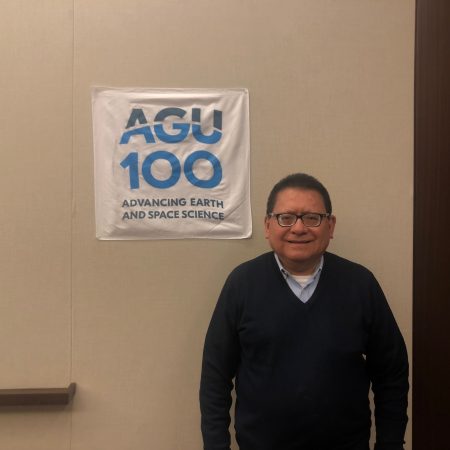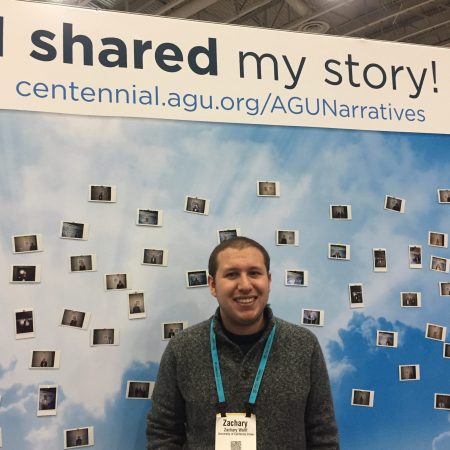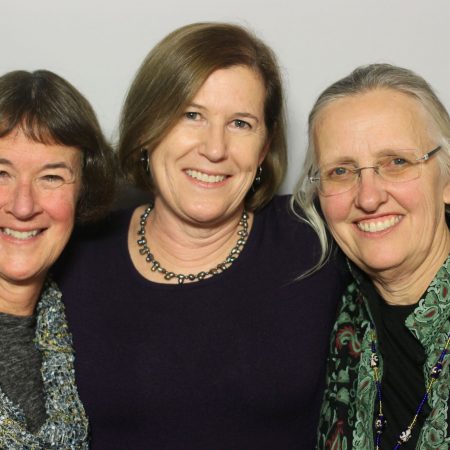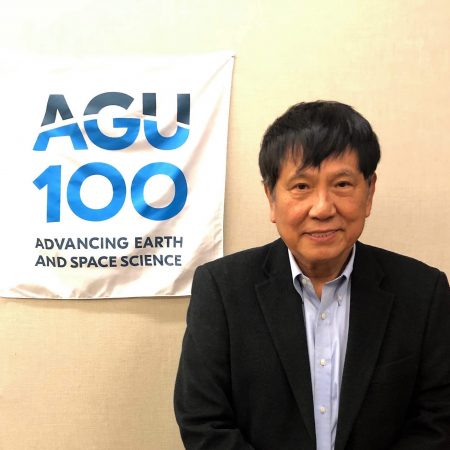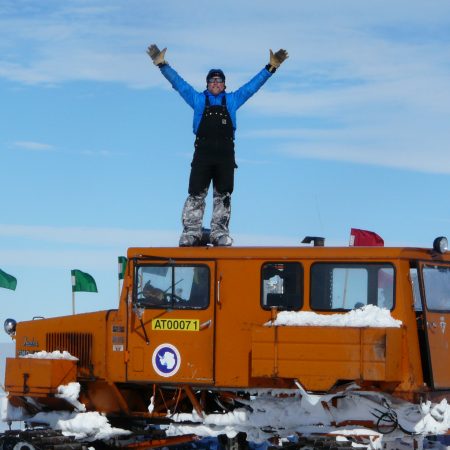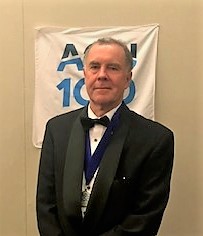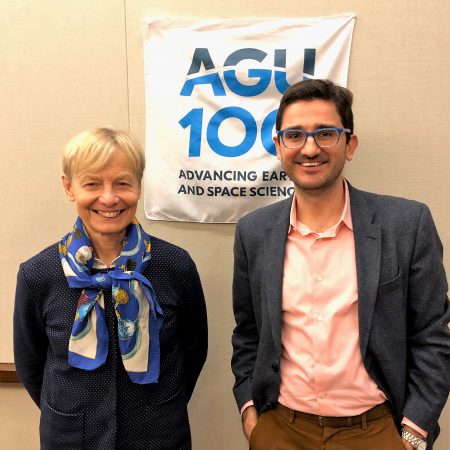Refine
Date Range Clear
Recorded by Clear
Keywords Clear
Partnerships Clear
- No matching terms.
Organizations Clear
- American Geophysical Union 67
- NASA 18
- National Aeronautics and Space Administration 9
- The American Geophysical Union 5
- American Geopysical Union 4
- 14 more
Places Clear
- AGU 2018 Fall Meeting 167
- Washington DC 164
- AGU 2019 Fall Meeting 22
- San Francisco 21
- AGU 2017 Fall Meeting 5
- 19 more
Languages Clear
Initiatives Clear
Dr. Amy Winebarger is an astrophysicist in the Heliophysics and Planetary Science Office at NASA. Listen to Amy talk about what makes sounding rockets awesome to work with, the rewards of being a mentor, and how a New York Times...
The start of a fruitful career for Richard Eckman was being on a team which discovered that the stratosphere and ozone varied in relation to the sun’s 27-day rotation. Eckman, who now works with NASA’s Atmospheric Composition Modeling and Analysis...
Dr. Ved Chirayath is the director of the Laboratory for Advanced Sensing (LAS) in the Earth Science Division at NASA Ames Silicon Valley. There, he develops and invents new instruments for NASA missions on Earth and in space, with much of his current work focusing on creating technology that will increase our...
Seismologist Lucy Jones gained recognition for doing a TV interview following the 1992 Joshua Tree earthquake while holding her sleeping infant son. Long before that, she became one of the first American scientists to enter China after it’s normalization in...
Catherine McCammon, staff scientist at Bayerisches Geoinstitut, University of Bayreuth, Germany and longtime AGU volunteer discusses collaboration and explains how she has found that the “the whole is great than the sum of its parts,” is truly an accurate statement....
Sprites are electrical discharges like lightning, but up in the middle atmosphere. Having only been in the scientific literature since the 1990s, sprites captured Geoff McHarg’s imagination while observing the Aurora in Alaska. Perfect for a guy whose view of...
Michael Freilich, Director of NASA's Earth Science Division, shares about his life studying the oceans and Earth as a system. While still in his high school's oceanography club, he started exploring a question about how waves move that later became...
The potential downside of a career in always seeking discoveries is that it may stunt the development of your confidence. Even as someone who walked into NASA, living the dream in his mind, Nathan Kurtz experiences that downside, politely calling...
William Putman, research meteorologist with NASA , was always fascinated by the way meteorologists on television could predict what was going to happen. But instead of comparing weather reports with the blowing of the trees outside his house, Putman now...
Nicholeen Viall is a research astrophysicist at NASA's Goddard Space Flight Center, with her research focus being the sun and solar wind. Listen to Dr. Viall talk about her start in space science, her greatest accomplishment, and her hopes for...
Padma Yanamandra-Fisher, a research scientist at the Space Science Institute, shares stories of her career in planetary science. She recounts how defining the launch of Voyager was and the significance of the growth in the field since. Padma shares her...
Sandra Cauffman was told growing up in Costa Rica that she couldn’t be an electrical engineer because she was a woman. Decades into a career which has largely involved getting her hands dirty building instruments to fix on spacecraft, the...
The next time you see a young kid skateboarding through the neighborhood, possibly listening to punk rock on their earbuds, remember that one day that kid could be your local science professor. Doug Jerolmack’s sturdy voice and love of experimenting...
Louise Prockter knows a thing or two about logistics and planning. When the first image of the unseen hemisphere of Mercury popped onto the screen during a flyby mission, her first thought was, "oh thank God, it's in the middle...
While many of the interviews at the conference were with experienced professionals with a career spanning several decades, this interview is with a young up-and-coming PhD student who traveled all the way from the Philippines to attend her first AGU...
Bidyut Bikash Goswami has found that people are very interested in his field of climate science and meteorology, even if they don’t fully understand it at first. He notes that people tend to assume that climate science means climate change...
As a child, Luke Oman was always looking out the window. Today, he works on atmospheric processing for NASA. How do volcanic eruptions affect everyday life? What happens when sulfur dioxide gases from volcanoes interact with sulfate aerosol and stay...
Kenneth Jucks, Program Manager for the Upper Atmosphere Research Program at NASA Headquarters, has gone from launching weather balloons, what he calls a “poor man’s satellite” to take measurements up to 25 miles above the Earth’s surface, to managing five...
This Sao Paolo, Brazil based senior space research scientist is best known for explaining geomagnetic storms. In 2017, he received an AGU prize for “cutting-edge work” on space weather and processes. He remembers being a UC Berkeley graduate student in...
Zachary Wolff talks about how his path to studying and creating models as a graduate student at UC Irvine was not straightforward: he first considered medicine and meteorology before working on a CICE radiation study and discovering his interest. While...
Robin Bell, Carol Finn, and Carol Raymonds reflect on their experiences in the field and how that has affected their personal and professional lives. (Recorded 14 December 2017)
After one spends 50 years with the same organization, what’s next? That’s the question Dave Mao is attempting to answer after a highly-decorated career at the Carnegie Institution for Science. Born in Shangai and raised in Taiwan, Mao came to...
Scott Tyler, hydrology engineer at the University of Nevada Reno and AGU Hydrology section president, shares his work on Antarctic ice shelves, nuclear waste, and stream restoration. Do we need to build sea walls in ten years or in one...
It took 21 years for Trevor McDougall to leave Australia, but when he did, he was on a plane headed to the University of Cambridge and a masters and Ph.D. in Oceanography. Besides the life-changing event of going from one...
For Ved Lekic, the opportunity to interview his mentor, Barbara Romanowicz, was a little daunting, so he brought along some questions. Once the conversation turns and Ved has a chance to answer some questions as well, we meet a very...
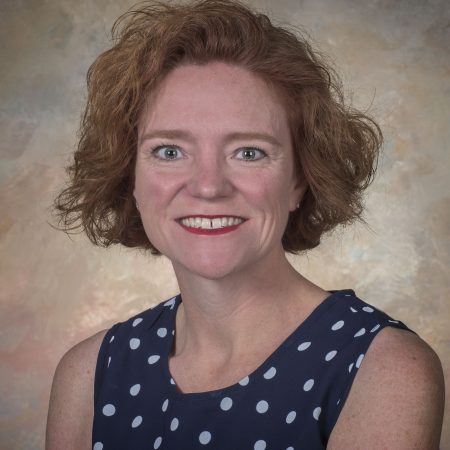

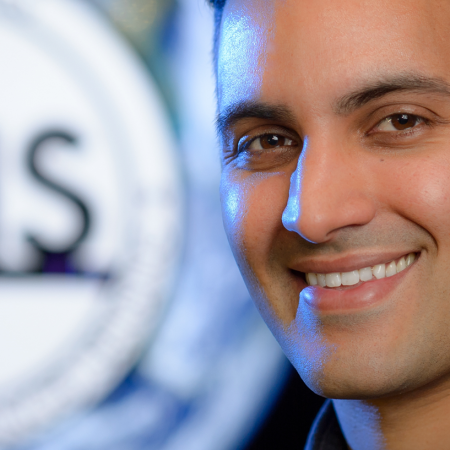
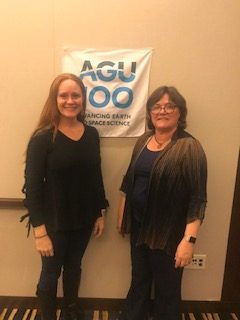
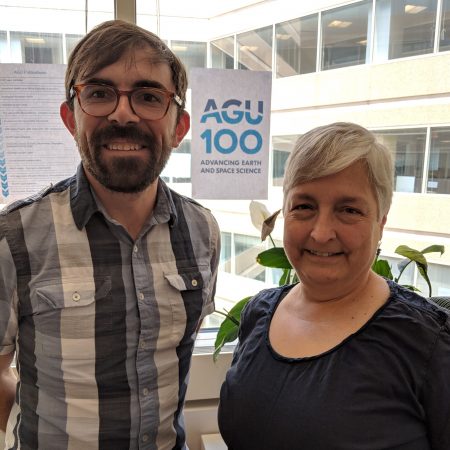

!["I joined an Oceanography club & actually asked the question that ended up [being] my thesis." an interview with Michael Freilich](https://archive.storycorps.org/uploads/2019/02/181212_Freilich-450x450.jpg)
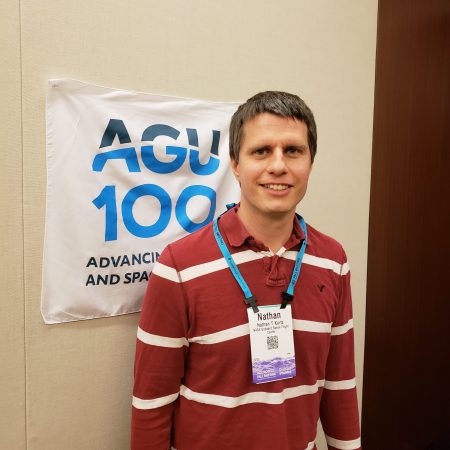
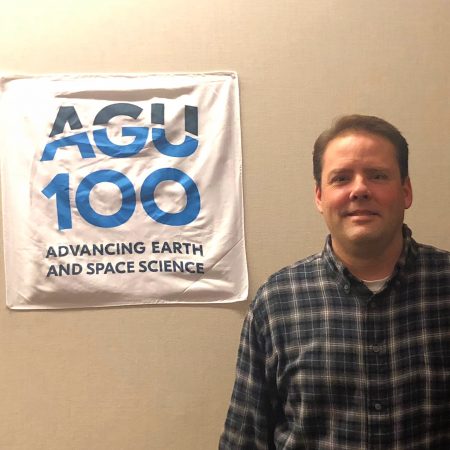
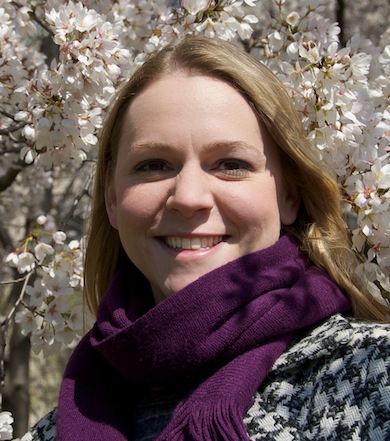
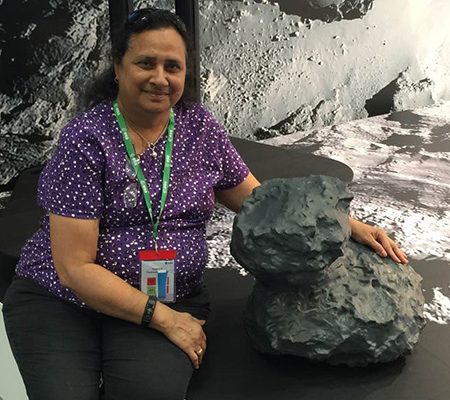

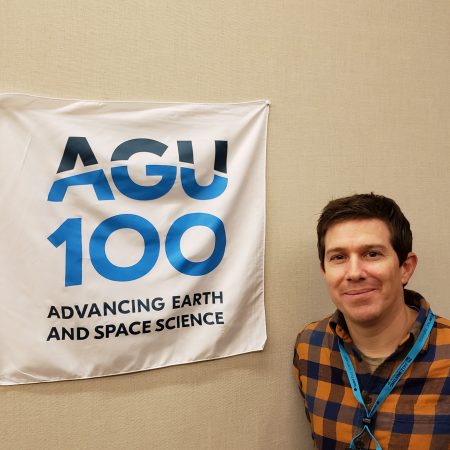

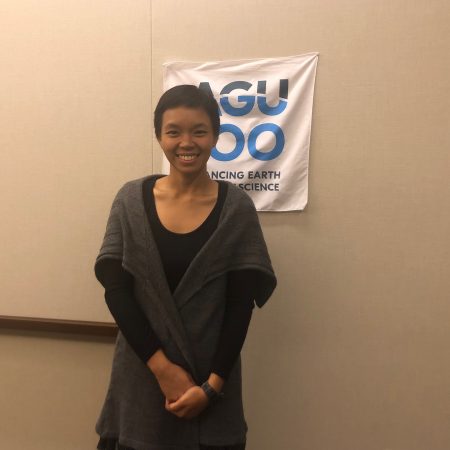
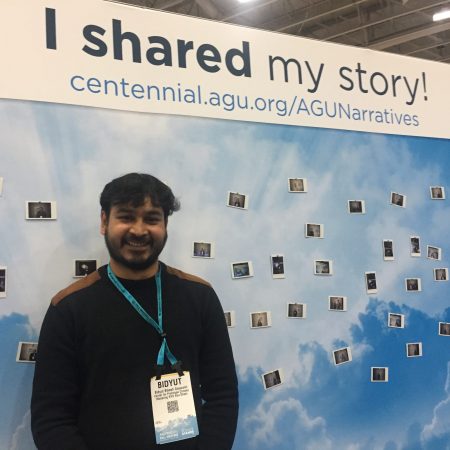

![“[The Montreal Protocol] is one of the few areas where the international community really came together." an interview with Kenneth Jucks](https://archive.storycorps.org/uploads/2019/01/181210_Jucks-1-450x450.jpg)
